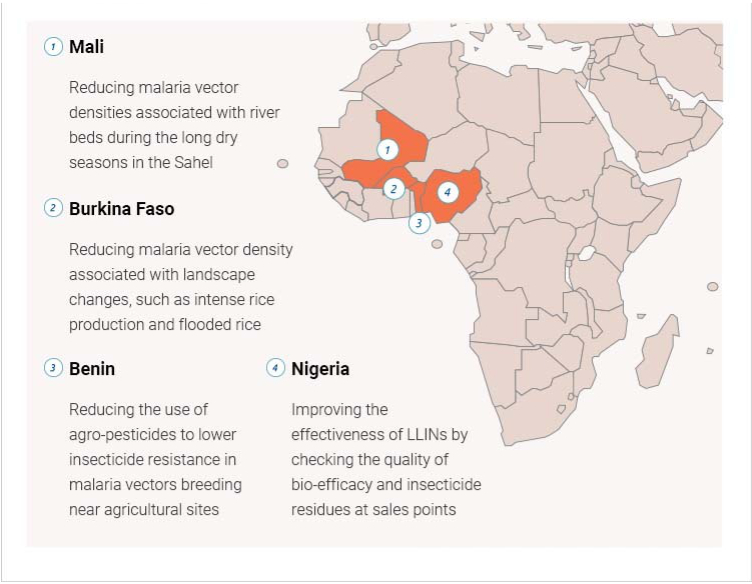
A pilot multisectoral intervention to combat residual malaria in West Africa
Why this project?
Despite the scale-up of efficient vector control tools, malaria still persists and has resurged in some West African settings. This is known as residual malaria.
The major contributor to this is the agriculture sector, exacerbated by environmental and seasonal factors.

Agricultural sector
Across Africa, rice production is under rapid intensification. Flooded paddies provide breeding sites for the Anopheles mosquito, one of the main vectors of malaria. In addition, agriculture insecticide use is thought to be one of the main reasons for increased resistance to the insecticides used in tools such as long-lasting insecticide nets (LLIN).
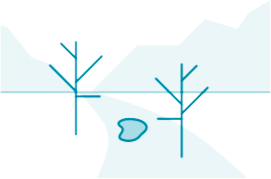
Environmental and seasonal factors
During the dry season, water pockets in dry riverbeds become breeding site hotspots for larvae of malaria vectors, sustaining malaria transmission throughout the dry season and aiding an explosive growth in malaria vector populations at the start of the rainy season.
The aim
This project aims to address residual malaria with a new holistic multisectoral approach (MSA).
It will bring together partners from different sectors and communities, to foster the sharing of human, infrastructural and financial resources to develop approaches that can effectively prevent and control vector-borne diseases, like malaria.
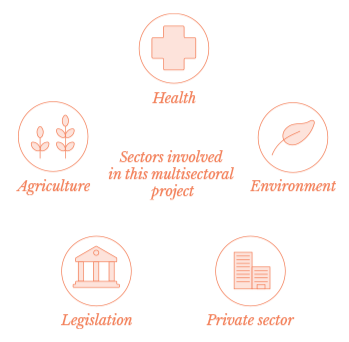
Objectives
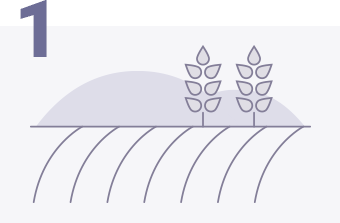
Reduce malaria vector densities associated with changes to the landscape due to intensive agricultural practices.
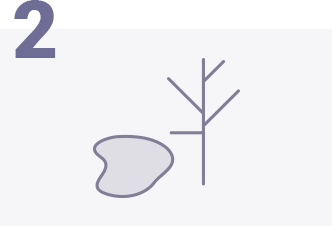
Reduce mosquito breeding sites in environmental hotspots such as riverbeds during dry seasons in the Sahel.
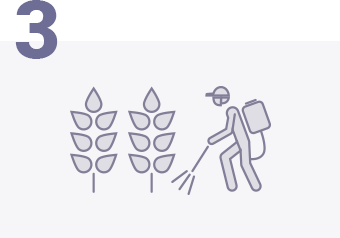
Promote the rational use of agro-insecticides

Quality check of long-lasting insecticidal nets (LLINs)
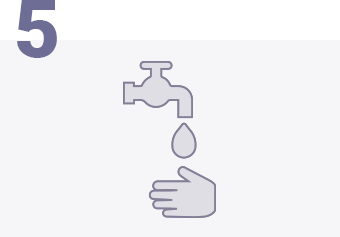
Assess the water, sanitation and hygiene (WASH) practices of the healthcare facilities in selected villages.

Establish a multisectoral advisory task force under existing integrated vector control (IVC) committees of the National Malaria Control Programme (NMCP) in each of the participating countries.
The research sites
